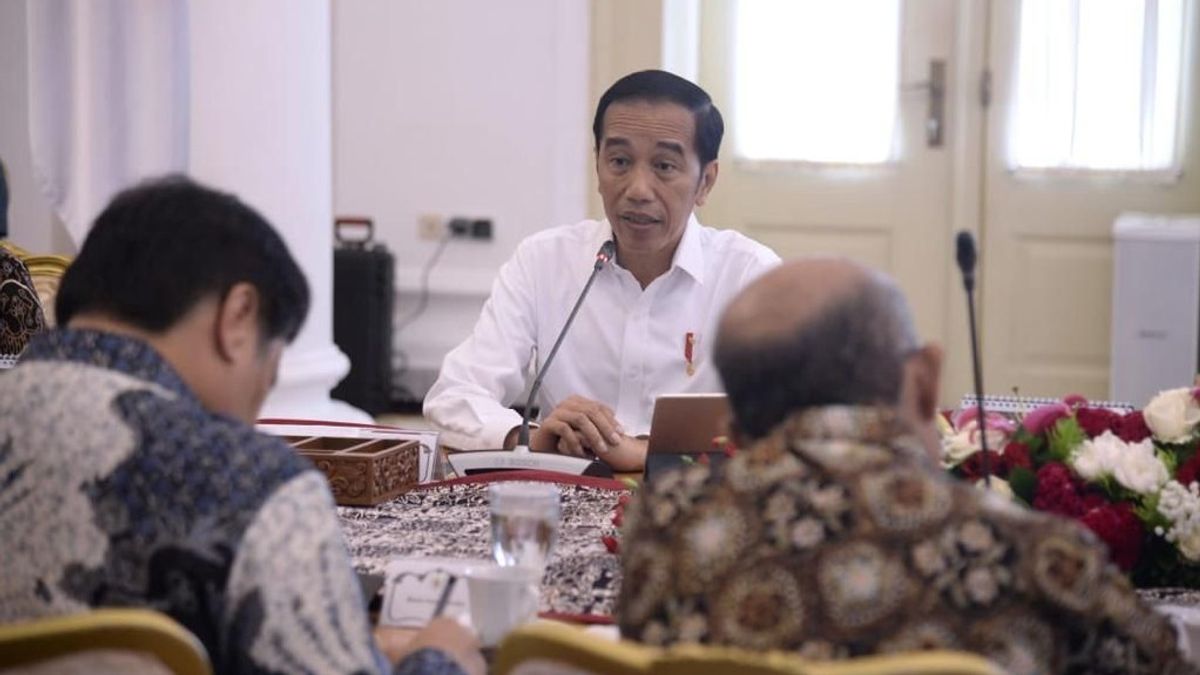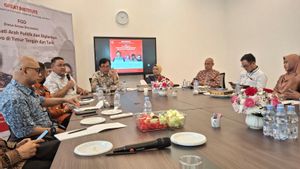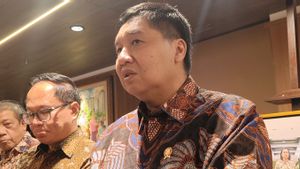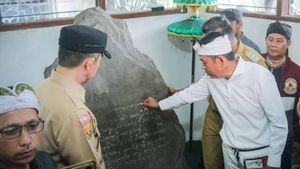JAKARTA - Extreme rainfall in early 2020 resulted in flooding in various areas of Jakarta, Banten and several other cities since Wednesday, January 1.
President Joko Widodo stated that the worst flooding in the capital city and its surroundings occurred in the Krukut, Ciliwung, Cakung, and Sunter Watersheds. The government has also handled the problem.
"As an emergency measure, pumps, sandbags, gabions and tanks have been functioning so that public areas and infrastructure can immediately function again," Jokowi said on his Twitter account, @jokowi, Thursday, January 2.
He added that the government had constructed flood control infrastructure for the four rivers, but had been constrained since 2017 due to land acquisition.
The Ciliwung River, for example, has already been handled 16 km from the 33 km plan. Upstream, the Ciawi and Sukamahi dams were built. "The two dams are planned to be completed by the end of 2020," he said, adding that the acceleration of the implementation of the Ciliwung River Sudetan from the Ciliwung River to the Cipinang River was continuing.
"The local community has agreed to use the land for the continuation of the construction of a 600 meter long section of a total of 1,200 meters," he said.
The worst flooding in the capital city and its surroundings earlier this year occurred in the Krukut, Ciliwung, Cakung, and Sunter River Basins. As an emergency measure, pumps, sandbags, gabions and tanks have been functioning so that public areas and infrastructure can function again. pic.twitter.com/tLvgTtqQrx
- Joko Widodo (@jokowi) January 2, 2020
The number of flood refugees in Jabodetabek is still quite high, with 62 thousand residents being displaced at 302 evacuation points. A total of 16 people from various regions, died, mostly due to hypothermia.
Head of the National Disaster Management Agency (BNPB) Doni Monardo said the evacuation process was difficult because the quantity of rubber boats was small. Also, some areas have obstacles that are quite difficult to pass because of the swift currents.
"Maybe the (evacuation) process is a bit slow, because the amount of aid that is being distributed in the field is still limited. Hopefully, the people of our brothers who are affected by this disaster can be helped as quickly as possible in very good ways," said Doni at Graha. BNPB, Jalan Pramuka, East Jakarta, Thursday, January 2.
Doni explained, BNPB appointed the mayor of each area in Jabodetabek to be the field command for flood handling. The assignment of this task was carried out in order to maximize the evacuation process and minimize the increase in flood victims. This was decided based on the results of the coordination meeting of BNPB, TNI, Polri, and regional officials throughout Jabodetabek today.
"So we arrange each region in such a way, including later from the ministry. So the moment of this meeting is for synergy. No longer can each ministry agency work itself," said Doni.
Furthermore, Doni appealed to the public not to hesitate to ask for help as soon as possible by contacting the nearest post to their respective mayors. He added that all parties were asked to coordinate between agencies to deal with this flood disaster.
"A joint team is needed. When someone needs help, the evacuation process will proceed. Areas that have difficulty in land transportation, then, especially later there will be people who need to be evacuated to the hospital and stop," said Doni.

Meanwhile, Head of the BNPB Disaster Information and Communication Data Center Agus Wibowo said that the standard for disaster management is generally 7-14 days. For the Jabodetabek flood, Agus has not been able to confirm the emergency status.
"Pak Doni has already conveyed that BNPB can determine the emergency status as well, usually for 14 days," he said, adding that food logistics were sufficient for this emergency status.
Agus added, BMKG predicts, rain will continue to occur in March. Therefore, the high potential for flooding is BNPB's main focus in the evacuation process. "Therefore, those in high areas, or the potential to wait, must immediately evacuate temporarily," he said.
The English, Chinese, Japanese, Arabic, and French versions are automatically generated by the AI. So there may still be inaccuracies in translating, please always see Indonesian as our main language. (system supported by DigitalSiber.id)










